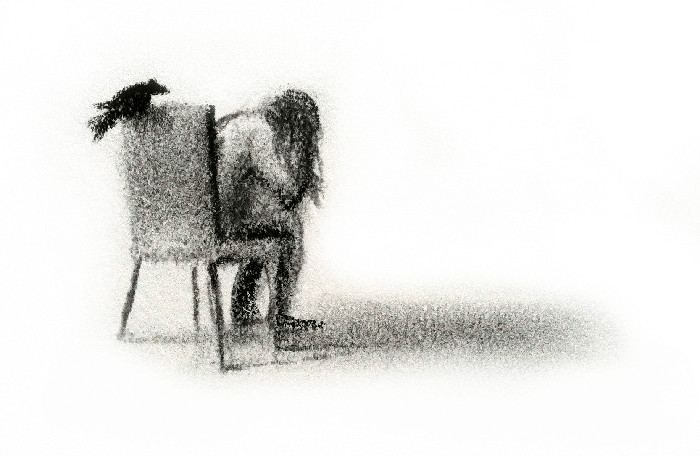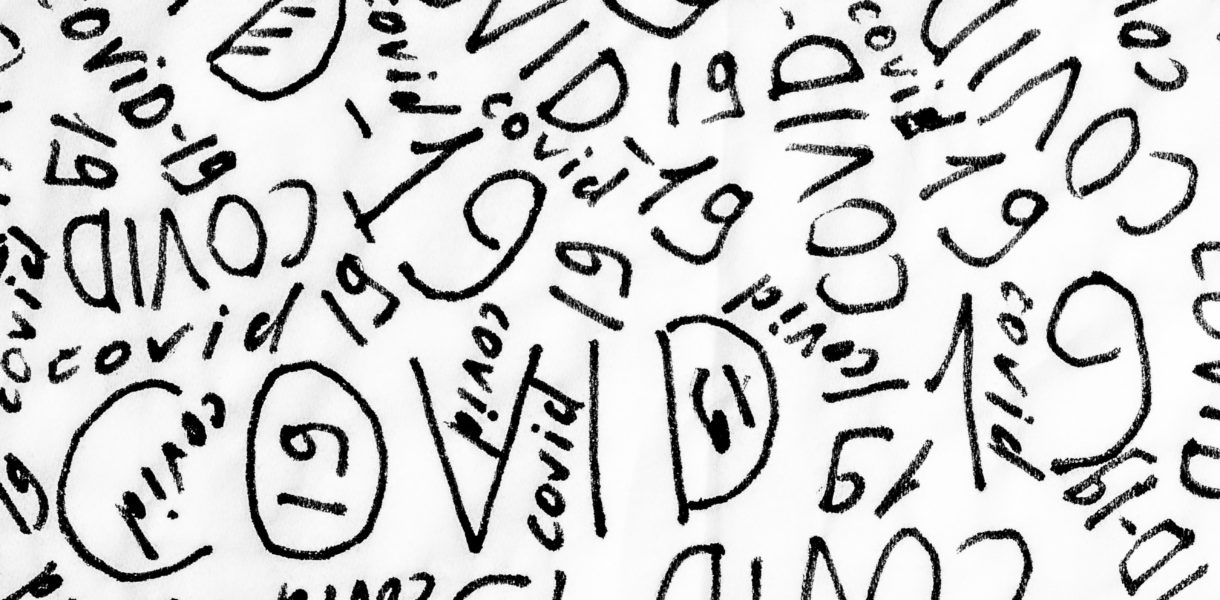*Content Warning: This piece contains references to depression, self-harm and suicide, which may be triggering to some.*
During the few months approaching COVID, I lived in a constant state of functioning depression. By the age of 22, though, I was fairly used to this. I had been ever since I was diagnosed with bipolar disorder at 17.
I went to work every day, I responded to my friends when they texted me, I still went out on Saturday nights, I ate at least two meals per day, I got out of bed in the morning. Those were the functioning parts.
Still, many nights consisted of an ongoing cycle of paranoia: my friends all hate me, I’m a burden to my family and I’m never getting better. Mornings were harder than they should be; I began crying at work. I would leave a group chat if it made me too anxious. Replying itself was difficult enough.
And, yes, I cut my own bangs.
Nonetheless, though, I got out of bed every morning and I tried. In December, I had applied to Creative Writing MFA programs. In March, I found out I wasn’t going - I didn’t get in. And then, COVID happened, quarantine became law, and I found myself isolated, alone and desperate.
This is how a life spirals from manageable to on fire.
This is what happens when everything you hold on for stability, happiness or normal disintegrates in your grip, leaving your closed fist empty, grasping for anything to grab onto. In 24 hours, I went from functioning to suicidal. I stopped working, stopped replying, stopped engaging. I crawled into bed and stayed there.
Quarantine has taken away every foundational part of our lives. An enormous part of maintaining your mental health is having a consistent routine. Everything from your job, to your meals, to your social gatherings fit into your routine, which keeps you stable. Quarantine has removed the consistency and regularity of work, has landed us in days with seemingly no beginning or end, and has eliminated all forms of physical interaction. Those basic parts are the basis of our lives, and without them, everything else can start to fall apart.
Depression wants to keep you inside, drag you back to your bed, pull the covers over your head, which is why one of the most important ways to maintain your mental health is getting out, socializing, and being consistent with your routine.
Now, there is no barrier between the paranoid thoughts that tell me everyone hates me and my reality. Those cruel thoughts have infected my space, my room, and now every time I crawl into bed, I feel like I’m sinking deeper into a black hole. It has infiltrated my living room, ridiculing me for watching “Brooklyn 99” instead of writing; my kitchen, where every avocado, mozzarella stick and piece of bread feels like a threat; my bathroom, where I keep the razors.
In the past, I would leave, go to a coffee shop, or the library, or the beach or a friend’s house. Now, I am captive to my thoughts, my memories, all my worse habits. I am suspended in a life I do not like and also do not know how to fix.
So, I spent about two weeks in bed, rewatching “Practical Magic” six times, ignoring every notification, and watching an obscene amount of Tik Toks. The thing about mental health is that it’s often hard to talk about. Even if you do tell your friends what’s going on, it isn’t the truth - it’s the watered-down version, the PG-rated version of the real thing. There are some things that I can never bring myself to tell my friends, and all the scary, bloody, overwhelming parts of my bipolar disorder are included in that list.
Sometimes, though, I break my rule, and I share something I told myself I wouldn’t say out loud. This doesn’t happen over text or on Facetime. It happens in the front seat of his car the morning after you cried, on the foot of her bed at the end of the night, the floor of your living room at three in the morning. Because of this, I held a lot in, and still have. I didn’t tell anyone about the pink scabs like tally marks running down my thighs, the fistful of Ambien, or why I never texted them back on my birthday.
In normal life, I go out, meet up with my friends, talk to them on their couch, or maybe vent to them for an hour in the back of a bar. I may feel the weight of my decisions on my chests every night before I go to sleep, but I usually have ways to at least feel less alone.
Those people, those friends I see and talk to are the people that pull me back to reality. Those are the people who remind me that this boiling, heavy feeling creeping from my stomach to my throat can be forgotten, if only for a drink, a movie, or a conversation. Perhaps, only a warm embrace from the passenger seat of my car.
Without them, I was instantly disconnected from the pulse of my life outside my house.
All I had were the insidious thoughts I was trying to fight off. Alone, my depression completely consumed me. I woke up with it, already manifested in a visceral, physical ache. Some mornings, I woke up crying, as if I’d just gotten out of surgery and was in immense pain. Sweatpants and old tee shirts became my uniform, I went to bed with the day’s clothes on, rarely showered, stopped eating and started hurting myself.
I talked to my therapist more than I talked to some of my best friends. My inbox flooded with unread emails, I stopped writing. Each day, it steadily became worse and worse until the day I almost swallowed a lethal amount of sleeping pills.
After two weeks, something shifted. I received my last grad school rejection letter; I could finally move on. I had a novel to write. I had friends if I talked to them. I needed to find a way to get a little closer to better while also under quarantine. I knew I couldn’t go on like this until the quarantine lifted. If I did, I wouldn’t even make it that far. I’m not better, per se, but I’m a good inch above rock bottom.
Right now, there is so much pressure to be productive. As if to say that because we have more time alone with ourselves, we must use this time wisely and productively. This time, though, is not free time. It is time spent in the middle of a global crisis. Time spent worrying about your family, in physical and economic health. Time spent starved of socialization.
Before we concern ourselves with productivity, though, we need to consider our health and wellbeing. We need to prioritize ourselves before what we produce. We must separate our worth from what is created during this time. By focusing on productivity, our mental health slips away until it disappears. So, rather than being productive, I began using my creativity in a more thoughtless, less complex way. I bought a coloring book, started painting my nails and played the piano. Eventually, I got back to working from home.
Parts of my life are slowly coming back together because I’m putting them together.
Your friends are waiting for you to rejoin the world of the living. They will not forget you or replace you. You can produce at whatever pace you need; what you create does not determine your worth. Your family loves you; you should talk to them. Your home is not submerged in water; you can breathe in there. Your laundry is waiting to be done, your bed is waiting to be made, your dishes are waiting to be washed. You don’t need 12 hours of sleep to get through the other 12.
You are stronger than this moment – this aching, bleeding, burning and temporary moment.

If you or someone you know is struggling with their mental health and needs help, here are some resources:
- National Suicide Prevention Lifeline: 1–800–273–8255
- National Alliance on Mental Illness (NAMI)
- SAMSHA National Hotline: 1–800–4357






